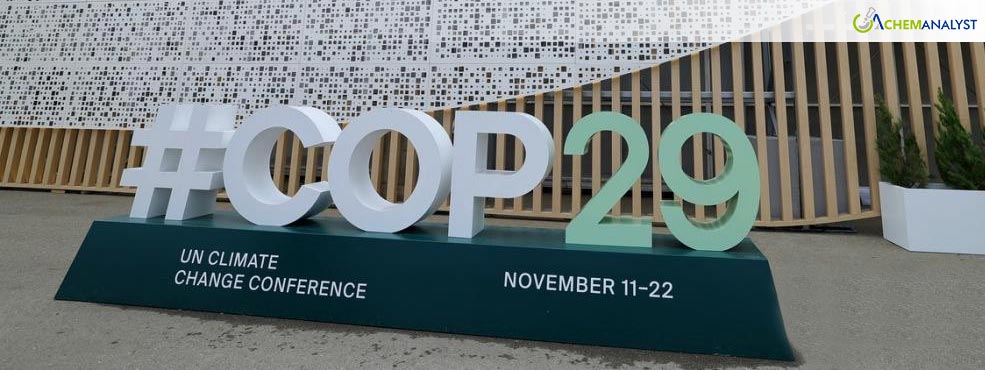Welcome To ChemAnalyst

India has firmly rejected the new USD 300 billion climate finance package announced at the ongoing COP29 climate conference, calling it inadequate and inequitable for the Global South. The deal, hailed by some nations and media outlets as a "landmark" for tripling the previous $100 billion target, falls far short of the $1.3 trillion that developing countries had called for to address the mounting challenges of climate change.
Speaking on behalf of India, Chandni Raina, an adviser to the Department of Economic Affairs, expressed strong dissatisfaction with the deal, criticizing its failure to meet the urgent needs of developing countries. She stated that the financial package, which primarily includes loans and private sector financing, is “too little, too distant” and would not help address the immediate and severe climate impacts that poorer nations face.
The climate finance package is a central aspect of the COP29 negotiations, which aim to address the growing gap between developed and developing nations in terms of both financial contributions and climate responsibilities. While the $300 billion deal represents an increase from the previous pledge of $100 billion, it falls far short of the $1.3 trillion that developing nations, including India, had demanded.
“The $300 billion does not address the needs and priorities of developing countries. It is incompatible with the principle of Common but Differentiated Responsibilities (CBDR) and equity,” Raina said. She also expressed frustration that India was not given an opportunity to voice its objections before the adoption of the deal, calling the process “stage-managed” and "disappointing."
India’s stance was supported by several other nations from the Global South, including Nigeria, Malawi, and Bolivia, who also criticized the deal as insufficient. Nigeria’s representative called the deal a "joke," further underlining the widespread dissatisfaction among poorer countries. These nations argue that the finance package, largely structured through loans rather than grants, would place a further burden on countries already struggling with debt and the impacts of climate disasters.
Climate activist Harjeet Singh, Global Engagement Director for the Fossil Fuel Non-Proliferation Treaty Initiative, was equally critical, calling the deal a "false hope" for vulnerable communities. He added that it abandoned those already bearing the brunt of climate disasters, leaving them to face these immense challenges without the necessary support.
“Developing countries, already struggling with the impacts of climate change, cannot afford to take on more debt through loans. What is needed is real, transformative financing in the form of grants,” Singh emphasized.
“The climate finance goal is an insurance policy for humanity, but like any insurance policy, it only works if the premiums are paid in full, and on time,” said Simon Stiell, the Executive Secretary for the UN Framework Convention on Climate Change (UNFCCC), in his closing remarks. However, he acknowledged that “we leave Baku with a mountain of work to do,” as no country was able to secure everything it wanted in the negotiations.
COP29, which brought together nearly 200 countries in Baku, has underscored the continued divisions between developed and developing nations on climate finance. The deal to increase funding to USD 1.3 trillion per year by 2035, while notable, is still largely framed within the context of loans, a significant point of contention for poorer countries who argue that this model perpetuates a cycle of debt rather than providing the transformative finance needed to tackle climate change.
In the lead-up to the COP29 conference, critics had warned that the proposal of $250 billion annually by 2035 would be insufficient and that “no deal is better than a bad deal.” Now, with the deal in place, many feel that the outcome does not go far enough to address the true scale of the crisis.
UN Secretary-General António Guterres, in his closing remarks, urged governments to view the agreement as a foundation to build on rather than a final solution. “Multilateralism — centred on the Paris Agreement — can find a path through the most difficult issues. I appeal to governments to see this agreement as a foundation and build on it.”
We use cookies to deliver the best possible experience on our website. To learn more, visit our Privacy Policy. By continuing to use this site or by closing this box, you consent to our use of cookies. More info.
